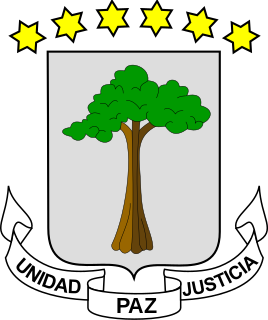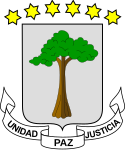
A transitional agreement, signed in October 1968, implemented a Spanish preindependence decision to assist Equatorial Guinea and provided for the temporary maintenance of Spanish forces there. A dispute with President Francisco Macías Nguema in 1969 led to a request that all Spanish troops immediately depart, and a large number of civilians left at the same time. Diplomatic relations between the two countries were never broken but were suspended by Spain in March 1977 in the wake of renewed disputes. After Macias' fall in 1979, President Teodoro Obiang Nguema Mbasogo asked for Spanish assistance, and since then, Spain has regained influence in Equatorial Guinea's diplomatic relations. The two countries signed permanent agreements for economic and technical cooperation, private concessions, and trade relations. President Obiang made an official visit to Madrid in March 2001, and senior Spanish Foreign Ministry officials visited Malabo during 2001 as well. Spain maintained a bilateral assistance program in Equatorial Guinea. Some Equato-Guinean opposition elements are based in Spain to the annoyance of the government in Malabo.

Teodoro Obiang Nguema Mbasogo is an Equatoguinean politician who has been President of Equatorial Guinea since 1979. He ousted his uncle, Francisco Macías Nguema, in an August 1979 military coup and has overseen Equatorial Guinea's emergence as an important oil producer, beginning in the 1990s. Obiang was Chairperson of the African Union from 31 January 2011 to 29 January 2012. He is the longest consecutively serving current non-royal national leader in the world.

Francisco Macías Nguema was the first President of Equatorial Guinea, from 1968 until his overthrow and subsequent execution in 1979.

The flag of Equatorial Guinea was adopted on August 21, 1979. The six stars on the map represent the country's mainland and five islands. Under the rule of dictator Francisco Nguema the flag was modified and a different national emblem was used on it. After he was deposed the original flag was restored.
Nguema may refer to two different post-colonial leaders of Equatorial Guinea:

The Democratic Party of Equatorial Guinea is the ruling political party in Equatorial Guinea. It was established by President Teodoro Obiang Nguema Mbasogo as the country's sole legal political organization on 11 October 1987.

Wele-Nzas Province is a province in the eastern portion of continental Equatorial Guinea. Its capital is Mongomo. It borders Centro Sur Province to the west, Kié-Ntem Province to the north, and Woleu-Ntem Province of Gabon to the east and south. As of 2015, the population of the province was 191,383.

General elections were held to elect a President and National Assembly in Equatorial Guinea on 22 September 1968, with a second round for the presidential election held on 29 September.

A constitutional referendum was held in Equatorial Guinea on 15 August 1982 following the overthrow and execution of Francisco Macías Nguema in the 1979 coup d'état. The new constitution replaced the 1973 document and appointed Teodoro Obiang Nguema Mbasogo president for seven years, as well as making provisions for the protection of human rights and limited political representation. It was passed by 95.8% of voters with a 93.5% turnout.

A constitutional referendum was held in Equatorial Guinea on 13 November 2011. It allowed the incumbent President Teodoro Obiang Nguema Mbasogo to run for at least two more seven-year terms as well as establish the post of Vice-President, widely expected to be given to his son Teodoro Nguema Obiang Mangue in preparation of dynastic succession.

The Ministry of Foreign Affairs, International Cooperation, and Francophone Affairs is Equatorial Guinea's foreign affairs ministry, with its headquarters located in Malabo, Equatorial Guinea. The current Minister is Simeón Oyono Esono Angue, appointed in 2018.

Equatorial Guinea–North Korea relations refers to the current and historical relationship between Equatorial Guinea and North Korea. While Equatorial Guinea has no representation in North Korea, it is one of few African states to have a North Korean embassy, located in the capital of Malabo.

President Obiang Nguema International Airport, is an airport located 1.0 kilometre (0.6 mi) southwest of the town of Mengomeyén, in the mainland province of Wele-Nzas, Equatorial Guinea. The airport is named after Teodoro Obiang Nguema Mbasogo, who has been president of Equatorial Guinea since 1979.

The 1979 Equatorial Guinea coup d'état happened on August 3, 1979, when President Francisco Macías Nguema's nephew, Teodoro Obiang Nguema Mbasogo, overthrew him in a bloody coup. Fighting between loyalists and rebels continued until Macías Nguema was captured fleeing for Cameroon on August 18. He sentenced his uncle to death for the crime of genocide against the Bubi people and other crimes committed. Macías Nguema was executed by firing squad on September 29, 1979. Teodoro has remained President since then.

Presidential elections were held in Equatorial Guinea on 24 April 2016. In a vote initially scheduled for November but brought forward by seven months, incumbent President Teodoro Obiang Nguema Mbasogo retained his office with 93.7 percent of the vote.

Equatorial Guinea–Spain relations refers to the diplomatic relations between Equatorial Guinea and Spain. Both nations are members of the Association of Academies of the Spanish Language, Organization of Ibero-American States and the United Nations.
Salvador Elá Nseng Abegue is an Equatorial Guinean military leader, politician, and diplomat.
This page is based on this
Wikipedia article Text is available under the
CC BY-SA 4.0 license; additional terms may apply.
Images, videos and audio are available under their respective licenses.















